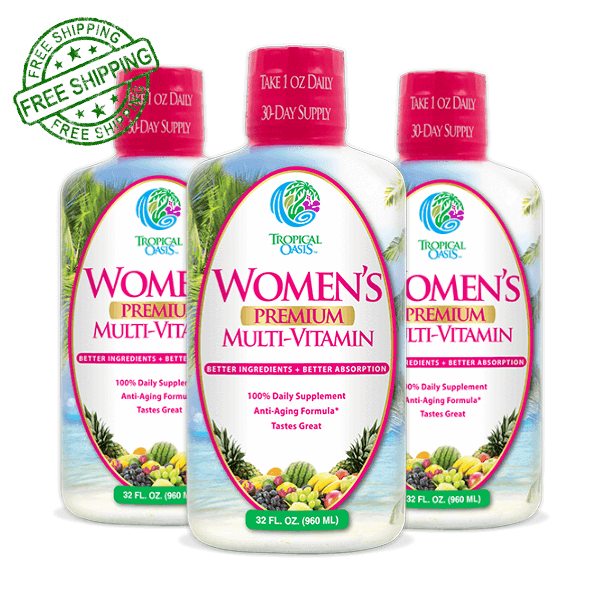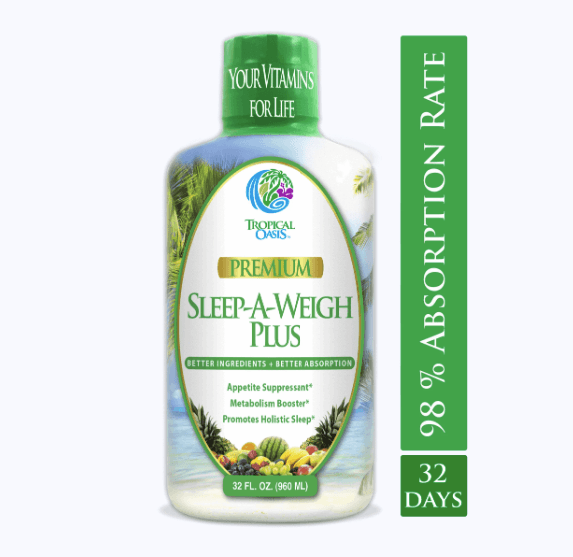The Benefits of Vitamins

It is no secret that one of the major keys to living a healthy lifestyle and feeling our best is to ensure that we are getting enough vitamins and minerals. The benefits of vitamins are wide-ranging and varied and will often differ depending on the type of vitamin that we are talking about. Often, the best way to get all of our essential vitamins and minerals is to eat well-balanced holistic meals with plenty of fruits, vegetables, grains, and healthy fats. Another great way to get our nutrition (and one that is becoming increasingly popular across the world) is to take vitamin supplements that are either geared towards a specific vitamins, such as vitamin D, Vitamin A, Omega-3, etc. supplements, or to take a complete multivitamin to get many of our vitamins in one fell swoop.
Whether you are looking for vitamins to cure specific ailments, such as joint pain; to increase your health in specific areas, such as increased energy or brain functions; or to increase your overall well-being, you will probably be interested in figuring out what vitamins you can take to serve these purposes.
In this article, we have listed some of the different areas that you may be looking to fix or improve along with the many different vitamins and dietary supplements that will be helpful to you in reaching these goals.

The Benefits of Multivitamins for Memory and Brain Functions
When it comes to how we feel and our overall health, there can be no more important organ than the brain: we want to be able to focus, to have energy, and to have a great functioning memory. Moreover, the brain is essential for the proper functioning of all other parts of your body, so a healthy body really does require a healthy and high-functioning brain.
Studies have shown that living a healthy lifestyle, getting enough sleep, and exercising can have great benefits on our cognitive functioning with benefits like increased memory, greater focus, and an improved ability to learn. Thus, many people who are interested in improving their brain functioning have integrated these activities and habits into their everyday routines. But healthy habits and activities are not the only ways that you can be nice to your noggin.
Luckily, there are many key vitamins that can support brain functioning as well, and these can be found by either eating certain foods or supplementing your diet with the proper dietary supplements.
1. B Vitamins
You will often hear people saying that the B in vitamin B stands for brain! Many studies show that the vitamins B, and vitamin B-12 in particular, may quite possibly be the best vitamins for improving cognitive function.
The vitamins B, collectively called the B complex, include thiamine (vitamin B1), riboflavin (vitamin B2), niacin (vitamin B3), pantothenic acid (vitamin B5), pyridoxine (vitamin B6), biotin (vitamin B7), folate (vitamin B9), and cobalamin (vitamin B12). These vitamins collectively have been linked to the metabolic process and helping your body produce energy. Additionally, they help the nervous system by boosting the production of neurotransmitters which are chemicals that deliver messages between neurons in the brain and body, and B-12 helps promote the development of red blood cells that carry oxygen to the brain.
For these reasons, getting the proper amount of the B vitamins can be very helpful in improving everything from energy levels to cognitive functions like memory and focus. The B vitamins can also help prevent various ailments of the brain. A recent study by Oxford’s Nuffield Department of Clinical Neurosciences showed that vitamin B can slow down the process of dementia and Alzheimer's Disease by slowing the atrophy of specific brain regions that are a key component of the Alzheimer's process and that are associated with cognitive decline.
Some of the best ways to integrate B vitamins into your diet include eating foods like beans, dairy products, eggs, fish, leafy green vegetables, meat, peas, and poultry. In order to get all the B vitamins’ health benefits, many people also turn to B-complex supplements to ensure that they are getting all they need of these great vitamins.
2. Vitamin E
A recent study featured in the Journal of the American Medical Association showed that vitamin E can have benefits for the mind and memory, especially in older people. The benefits of vitamin E for cognitive functioning are mostly preventative since it can help functional decline in people with Alzheimer's disease.
The foods that you can eat to increase your intake of vitamin E include nuts, seeds, dark-colored fruits (such as blueberries, avocados, and blackberries) and vegetables (such as spinach and bell peppers).

3. Vitamin K
When we think of vitamin K, we usually think of a vitamin that contributes to strong bones. But recent studies have indicated that vitamin K can also have some great effects on brain health. According to a study conducted by the Department of Nutrition at the University of Montreal, vitamin K was associated with better cognition and behavior among geriatric patients.
If you are eating a lot of green vegetables, then you probably have nothing to worry about when it comes to getting enough vitamin K. Foods that are a great source of these vitamins include kale, collard greens, spinach, broccoli, asparagus, pine nuts, and blueberries.
4. Omega-3s
The omega-3s, which include ALA, EPA, and DHA are mostly known for their heart health and skin benefits, but they also have been linked to a number of benefits for the brain.
These fatty acids seem to have an important role in developing babies’ brains. In fact, several studies have identified a correlation between pregnant women’s intake of omega-3s and higher scores for their children on tests of intelligence and brain function in early childhood.
In addition to the benefits for kids, Omega-3s have been shown to be vital to the maintenance of normal brain functioning throughout all ages of life since they contain an abundance of brain cell membranes that can help preserve cell-membrane health and facilitate communication between brain cells.
The Health Benefits of Multivitamins for the Heart
Heart disease is the number one cause of death in the United States for both men and women. The broad range of diseases that fall under this title, including blood vessel diseases, heart rhythm problems, and heart defects which can cause blocked arteries, heart attacks, chest pain, and strokes, are responsible for 23.5 percent of deaths.
Like brain and cognitive health, keeping your heart healthy has a lot to do with the activities you engage in, such as exercise. Additionally, we often hear about foods you should avoid to keep your heart healthy, such as avoiding foods like high amounts of sodium, saturated fat, cholesterol, trans fat, and refined sugar. But we might also wonder what we should eat to keep our heart healthy. These will be foods high in a number of key vitamins and nutrients outlined below:

1. Vitamin D
Vitamin D acts as a hormone that regulates more than 200 genes throughout the body. It functions to keep abnormal cells from multiplying in breast and colon tissues, to regulate blood pressure in the kidney, and to regulate blood sugar levels in the pancreas.
The human body produces vitamin D on its own when exposed to sunlight. However, getting the proper amount of sunlight can be difficult during the winter or when one has a busy schedule, meaning that vitamin D deficiency is something that everyone will want to look for.
According to John’s Hopkin’s Health Professionals, a growing number of studies “point to vitamin D deficiency as a risk factor for heart attacks, congestive heart failure, peripheral arterial disease (PAD), strokes, and the conditions associated with cardiovascular diseases, such as high blood pressure and diabetes.” On the other hand, rising vitamin D levels lowers the risk of cardiovascular disease.
For these reasons, the benefits of vitamin D should be clear, and if you are someone who thinks that they may not be getting enough vitamin D from sunlight exposure, you may want to consider adding a vitamin D dietary supplement to your daily regimen or taking a multivitamin which includes vitamin D among the various other vitamins.
2. Folic Acid
One of the leading factors in cardiovascular disease leading to coronary artery disease and heart attacks is the hardening of the or loss of elasticity in the arteries that supply blood to the heart. While there can be various causes of this phenomenon, the amino acid, homocysteine, has been consistently linked with arterial hardening with studies showing that high levels of homocysteine can double or triple the risk of cardiovascular disease and stroke.
Research has shown that B vitamins naturally lower dangerous levels of homocysteine with folic acid specifically being identified with the capacity to reduce the thickening of arterial walls in individuals with a high risk of heart disease. In fact, the journal, Clinical Nutrition, has determined that folic acid lowers stroke risk by 12 percent by lowering homocysteine levels in the blood and reducing artery wall thickening
3. Omega-3s (again!)
Omega-3s make a re-appearance in this section for what they are best known for: reducing risk factors for cardiovascular disease. One of the greatest effects of omega-3s is their anti-inflammatory capabilities since inflammation in the body can damage your blood vessels and lead to heart disease and strokes.
Given the anti-inflammatory properties of omega-3s, as well as various other properties, taking omega-3s can benefit your health by decreasing triglycerides (which are a contributing factor to a number of health issues), lowering blood pressure, reducing blood clotting, reducing irregular heartbeats, and overall, decreasing your risk of strokes and heart failure.
Given the health benefits of omega-3s for both cognitive and heart health, it is likely that you will want to increase the amount of these fatty acids that you get in your diet. Unfortunately, if you do not eat a lot of seafood, this can be quite difficult to do without supplementation. Some of the top food sources of omega-3s are fish, such as salmon, mackerel, cod, herring, and tuna, while some other non-fish options include eggs, flax seeds, and walnuts. Nevertheless, checking out your options for omega-3 dietary supplements may be the best choice for a number of people who do not find it easy to integrate these foods into their diet.
5. Magnesium
Unfortunately, magnesium is a mineral that is often over-looked when it comes to heart health, which is surprising since magnesium might just be the best mineral for your heart. Let it be overlooked no more! Its time to give some love to this mineral.
The first reason why magnesium is so great for your heart is that it lowers blood pressure which is a concern that affects one in three Americans. An analysis of 34 studies conducted by the Department of Epidemiology at the University of Indiana showed that a median dose of 368 mg of magnesium significantly reduced both systolic and diastolic blood pressure values in both healthy patients and adults with high blood pressure.
The next great benefit of magnesium for heart health is that it has been shown to reduce the risk of heart disease. One study showed that out of the people in the study, those with the lowest level of magnesium had the highest risk of death, especially from heart disease. Another study showed that increasing your intake of magnesium may lower the risk of heart disease due to its anti-inflammatory properties which can lower blood pressure and prevent blood clotting. Overall, an analysis of 40 studies with more than one million participants found that consuming 100 mg more per day reduced the risk of stroke by 7 percent and reduced the risk of heart failure by 22 percent.
Finally, magnesium has been shown to help in the maintenance of a healthy heartbeat due to its interactions with Calcium. Calcium is necessary for generating heart contractions (the heartbeat) since upon entering heart muscle cells, it has a stimulating effect that makes the heart contract. When your magnesium levels are low, calcium may overstimulate your heart muscle cells which can result in symptoms of potentially life-threatening rapid or irregular heartbeats. This is because magnesium has a countering effect on calcium which helps the heart muscle cells relax and prevents overstimulation.

Vitamins for Healthy Skin, Hair, and Nails
Having strong nails, good looking skin, and healthy hair can be great for anyone who wants to keep up a beautiful appearance. What many people don’t know is that these external factors can be indicators of overall health. In fact, when it comes down to it, taking care of your hair, skin, and nails is really all about taking care of your health in general. Of course, there are some vitamins minerals that affect hair, skin, and nails more than others, and it will be these that you will want to look for if you wish to keep your hair, skin, and nails looking as good as they possibly can:
1. Biotin
Biotin (vitamin B-7) is a water-soluble vitamin that functions to metabolize fatty acids, glucose, and amino acids and to promote healthy cell growth. Biotin is usually on the top of people’s list when it comes to nail and hair health since it has been widely associated with the promotion of nail growth, the treatment brittle nails, and the prevention of hair loss.
2. Zinc
In addition to its use as a popular treatment for common colds in conjunction with vitamin C for their abilities to improve the immune system, zinc has been shown to be a mineral with great effects for hair and nails.
Zinc plays an important role in hair tissue growth and repair, while zinc deficiencies have been shown to cause hair loss in some individuals, while zinc supplementation has been shown to reduce hair loss due to zinc deficiencies.
Additionally, zinc plays a major role in promoting the growth and division of cells. Since nail cells grow and divide faster than most other cells (as shown by the amount we have to cut our nails and hair), zinc deficiencies can cause major problems, such as the degeneration of the nail plate and the appearance of white spots on the nails.
3. Vitamin A
Vitamin A is a fat-soluble vitamin stored in the liver. There are two types of vitamin A. The first is preformed vitamin A is found in animal products, such as meat, fish, poultry, and dairy foods. The second is the more common type of vitamin A, beta carotene, which is found in plant-based foods, such as fruits and vegetables.
All types of cells need vitamins A to grow, and this especially includes hair and nails which are two of the fastest-growing tissues in the body. In addition to hair growth, vitamin A also helps the body produces an oily substance called sebum, which moisturizes the scalp and keeps hair healthy. Those concerned with having healthy hair will definitely want to make sure that they have enough vitamin A since vitamin A deficiency may lead to several problems, including hair loss. However, it should also be noted that you should not take extremely high doses of vitamin A since some studies have shown that too much vitamin A can also have side effects, such as hair loss.
4. Iron
Getting the proper amount of iron is essential for the health of many of the body’s functions, especially hair and nail health. Iron is necessary for red blood cells to be able to carry and transport oxygen throughout the body.
A deficiency in iron will mean that red blood cells will have trouble transporting to the body’s extremities like the fingers and toes. If you are iron deficient, then these will be some of the first areas that will show it. Signs of iron deficiency include the appearance of vertical ridges on the fingernails and the curving of the nails in a concave shape. Additionally, iron deficiency can cause anemia which is a major cause of hair loss, especially in women.
There are two groups that are especially at risk of iron deficiencies: women and vegans/vegetarians. Women require more iron than men do, especially if they are pregnant. While men need approximately 8 mg of iron in their diet, women need approximately 18 mg of iron and 27 mg of iron a day if they are pregnant. Those who are vegetarians or vegans may be at risk of being iron deficient because some of the best sources of iron come from meat.

There are Many Benefits of Vitamins
Whether you are looking for benefits to your cognitive abilities, for your heart, for healthy nails, hair, and skin, or for something else entirely, there are many vitamins and minerals that can help you achieve these goals. The benefits of multivitamins and supplements are wide and varied. While some are able to get their vitamins from healthy and balanced meals alone, many others will want to turn to dietary supplements to make sure that they are getting all of the vitamins that they need.
Some people may look at the list above and find that they only want vitamins to serve a few specific purposes, and thus, may buy specific vitamins, such as our Calcium Magnesium Citrate supplement, to meet their needs. Others might look at the list above and think, “Hey, all of those benefits sound good to me.” These might be interested in buying multivitamin supplements, such as our Adult Vitamins and Minerals liquid supplement which contains many of the vitamins mentioned above and will be helpful to anyone hoping to increase their health in a holistic way.



